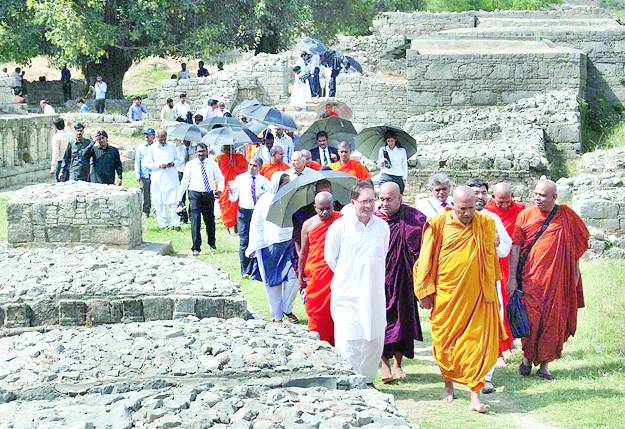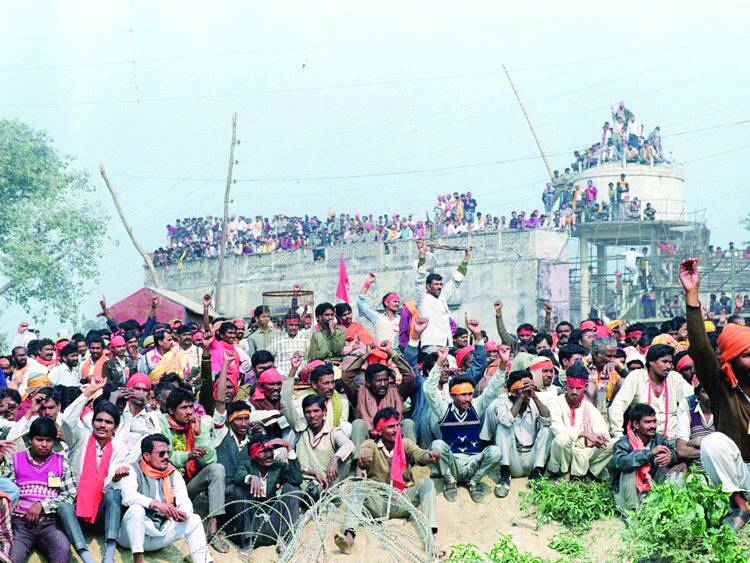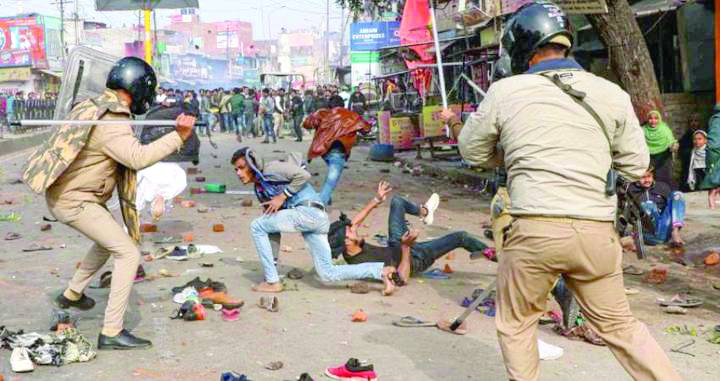Even before the coronavirus pandemic turned the world upside down, South Asia was going through turbulent times. Nations like Pakistan, Afghanistan, and India stood at crossroads; each grappling with uncertain futures and divergent ideologies.
While the contours of this future remain uncertain, it is unmistakable that India and Pakistan are headed in opposite directions. For decades Pakistan struggled with crippling terrorism that was propped up in society by radical religious fanaticism. Meanwhile India continued to uphold the secular values of its founders, bringing in economic prosperity for millions in the process. In the last decade that equation has been flipped on its head. Pakistan subdued religious militants in its borders and brought normalcy back to the cities. It elected to make inter-faith harmony a core principle of the state and worked hard to achieve that goal. India in contrast, abandoned the secular and syncretic ideals of Jawaharlal Nehru and Mahatma Ghandi. It replaced them with a vicious and cruel fascist state which openly professes allegiance to an ideology that is built on ideas of racial and religious superiority.
As it stands, Pakistan may soon be the safest nation for minorities in South Asia. Actions indeed speak louder than words, and the contrast between the two South Asian states is stark.
Like most other countries that have a turbulent past, Pakistan hashad its share of issues with the treatment of minorities. However, recent developments show that it is also consistently looking to make society more inclusive, tolerant and safer for all those that live here.
Minority places of worship are being renovated and their place in Pakistan’s identity is being cemented. The government has actively tried to make religious tourism for non-Muslims easier and accessible in Pakistan. It is unthinkable for any other country to open their borders and allow visa-free access to a state that professes to be theiropponent, yet the opening of Kartarpur Corridor for Sikh pilgrims did just that. The effort and expense by the Pakistani authorities bore fruit; the joy expressed by Sikh Yatris was palpable, and both Punjabs rejoiced in mutual brotherhood.Pakistan’s efforts to renovate and allow greater traffic from outside the country to Hindu temples such as Katas Raj is testament to the government’sattempts to make this country more accessible for non-Muslims at every possible opportunity.
In India, the protection of minority places of worship is virtually non-existent. In fact, Hindu ultra-nationalists have often subverted the rights of Muslims with absolute impunity. The most recent decision of India’s Supreme Court in the Babri Masjid case is indicative of just how far state institutions in the country are willing to bend over backwards to appease hardline religious nationalists. The fact that these same religious zealots took the opportunity of the Delhi riots to attack the Muslim community and desecrate mosques is indicative of the state of minorities over there.
The worshipers inside these places of worship are in even greater danger. Lychings of minorities – often filmed and shared on social media – have become normalised. In the last five years, since Modi was first elected to office in 2014, the country witnessed 276 religious bias-driven hate crimes, according toHate Crime Watch. In the five years preceding Modi’s tenure, there were only 24 cases. More disturbing is the fact that the lynch mobs are garlanded by government politicians when they inevitably get bail. During the Dehli riots, even the police joined the mob to kill and maim Muslims. Contrast this with Pakistan, the number or religiously motivated killings are a fraction of India. The incidents that do happen are prosecuted to the fullest extent of the law, and the state is increasingly confident in taking unpopular decisions and standing up to religious hardliners. Salman Taseer, Asia Bibi, and Mashal Khan – the state chose to make a stand for peace and tolerance in each case.
Pakistan and India currently stand poles apart in ideologies and now, in even the perception of international observers with regards to both domestic, and foreign policy-related actions. Pakistan has extended the hand of peace far and wide, had a key role in ending decades of uninterrupted war and conflict in Afghanistan and was lauded for it. Its offers to mediate between those that have decades of hostility between them, such as in the case of Saudi Arabia and Iran, have not gone unnoticed. International bodies such as the United Nations and the European Union have recognised that Pakistan is willing to step up to promote non-conflict in the region and beyond. Its commitment to peace goes beyond just words, as evidenced by the government’s decision to return an aggressor nation’s fighter pilot the very next day, even though his and his country’s intentions were centred on war and death.
Compare that to Pakistan’s eastern neighbour, which touts itself as the world’s biggest democracy, but has no space for independent views, a pacifist mindset or indeed, the patience to engage its neighbours on issues that have existed since mutual independence. When Pakistan has made the consistent offer of talks over all long-standing issues, India has replied with violations over the LoC, but last year, it went several steps further and made a foolhardy attempt to encroach Pakistan’s borders in the Balakot incident. The world is not blind to the facts. How can a country profess to be peaceful when it puts innocent people under lockdown for more than six months, brutally tortures its own people when they protest against borderline-fascist laws and instead pretends as if Pakistan is the reason for all of its problems? Even its closest trading partners such as the US, Malaysia and the EU have come out in support of anti-CAA protesters and the struggle of the Kashmiri people.
The ideologies that governed these two nations are in a state of flux. Even here their destinies are conjoined at the hip; as India grows more intolerant, Pakistan seems to be picking up the fallen torch of harmony and secularism.








